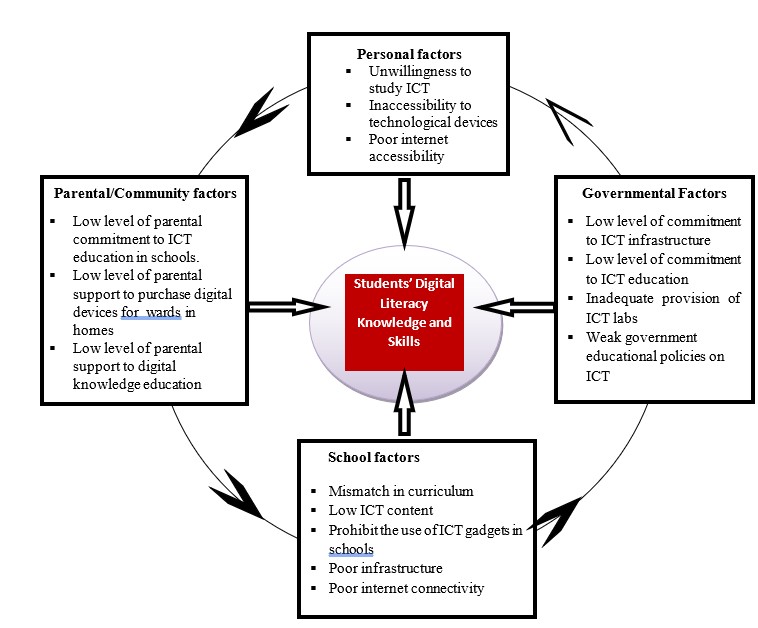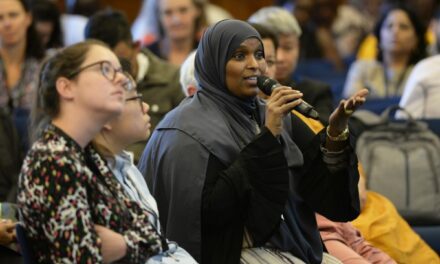This blog was written by Dr Jacob Oppong Nkansah from the School of Graduate Studies, Lingnan University, Hong Kong. His research area focuses on adult social care, social vulnerability, health policy, and higher education. It is based on a presentation given at the 2023 UKFIET Conference.
Stakeholders in higher education are coming to see the value of promoting digital literacy among students. Although this skill set has become increasingly important for achieving SDG goal 4, there is a significant knowledge gap about the level of digital literacy among youth worldwide, due to countries not collecting enough data on digital literacy skills and knowledge. This is because studies claim that people take for granted the ability to use computers and the internet to perform basic tasks. For many, a lack of ICT tools and knowledge places them at a disadvantage in this twenty-first-century teaching and learning environment. Although universities remain the key engines of social development, it serves as a challenge for universities to include digital literacy in the education system.
More importantly, efforts to improve digital literacy skills are noticeably lacking for nations in the Global South, especially those in resource-constrained Africa. Ghana, like most countries in the Global South, has low levels of digital literacy among the marginalised global community, which contributes to the digital literacy gap. It seems that Ghana’s universities are sluggish to appreciate the importance of technologically-proficient graduates to the modern economy. This has resulted in a digital literacy skills gap among undergraduate students in Ghana. Therefore, there is a need to investigate the attributions of the digital literacy skills gap among undergraduates, and research suggests that this is particularly true in nations in the Global South.
Methods
This study employed a novel conceptual framework building from the ecological theory to investigate the attributions of the knowledge and skill gap in digital literacy among Ghanaian undergraduate students. A phenomenological qualitative design was implemented to collect data from 16 undergraduates in a large public university in Ghana. Because of Ghana’s unique situation regarding the prevalence of digital literacy knowledge and skills gap in West Africa; the data collected from the Ghana higher education system make the dynamics more obvious.
Study findings
The following framework presents the specific ways that demonstrate students’ perceptions of the various sources or attributions of students’ knowledge and ability gaps in digital literacy.
Policy implications/recommendations
The policy implications are examined using Ghana as a specific example, but they also apply to other less technologically-advanced nations in the Global South, which are also going through technologically-unstable conditions. The study has revealed several factors leading to digital literacy and skills gap among students in Ghana. This calls for collaborative efforts between the government, higher education institutions, communities, parents, and all other stakeholders, both local and international, in dealing with it. In ensuring fundamental computer and information literacy competencies required for the efficient use of computer and digital resources, the government, international organisations, NGOs, and other stakeholders, including the Ministry of Education and the Ministry of Communication and Digitalisation, must step in. They must strategise on innovative ideas and enforce policies. Additionally, the University ICT Directorates must regularly plan classes and seminars that call for both staff and students to use digital services and Internet resources. This would significantly expand students’ access to digital learning and other services that will improve their digital literacy and boost their level of confidence.
The results of the study show that insufficient ICT foundations at the elementary and secondary school levels cause a lack of digital literacy skills among undergraduate students. In order to put digital literacy on par with the other three literacies (reading, writing, and arithmetic), it is advised that the government of Ghana, working under the auspices of the Ministry of Education, the Ghana Education Service, and universities, develop comprehensive, integrated, and cogent digital literacy strategies for students at all levels.






